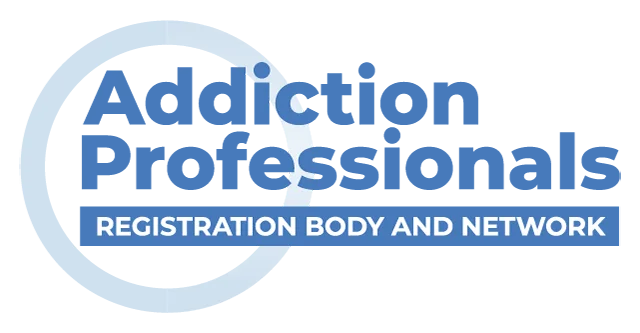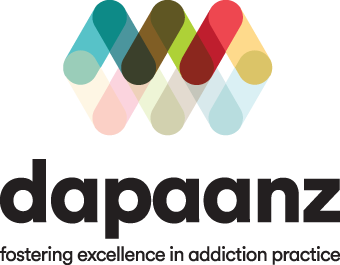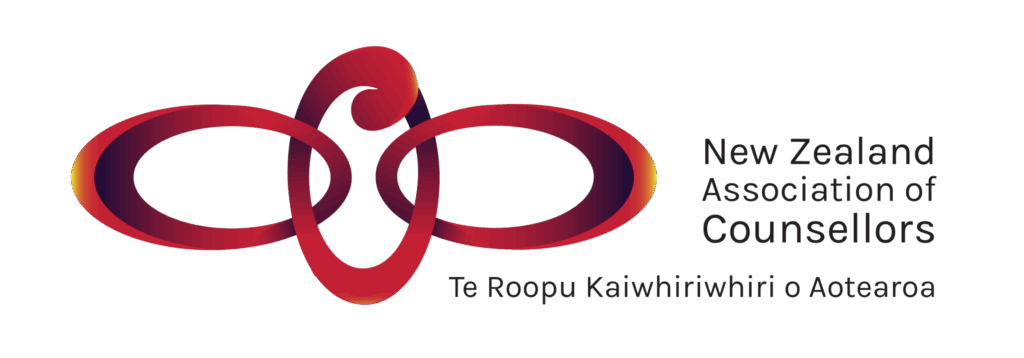- Home
- Mental Health
- Anxiety Treatment
Anxiety Retreat Thailand
Get professional anxiety treatment in a calming environment that helps you break the cycle of worry and fear. Our anxiety retreat for adults provides the comprehensive care you need to manage overwhelming thoughts, regain control of your daily life, and build the peaceful future you deserve.
Featured in



How Our Anxiety Retreat Works
Our person-centred, trauma-informed approach recognises that anxiety often stems from traumatic experiences and manifests as persistent patterns of worry, fear, and physical tension that leave you feeling overwhelmed.
These patterns often develop into panic attacks, social avoidance, sleep disturbances, and other symptoms as your mind tries to protect you from perceived threats, even when you are safe.
To give you the best chance at long-term relief, we address your presenting symptoms and the root causes of your anxiety, including underlying trauma.
When you arrive, you will receive a personalised treatment plan guided by our Treatment Roadmap, which takes you through carefully paced phases designed to help you regain mental clarity and rebuild your sense of calm.
In our tranquil environment, far away from everyday stressors and anxiety triggers, you will have the safe space and expert support needed to develop effective coping skills and find your footing.

Helen Wells, Clinical Director
Certified Trauma Professional (PACFA)
Personalised Anxiety Treatment at The Dawn Thailand
Your recovery journey at The Dawn begins with a comprehensive treatment plan tailored to your needs and guided by our Treatment Roadmap. We will take you through structured phases that help you calm your nervous system, address underlying anxiety causes, and prepare you for a peaceful, balanced life.
Comprehensive Assessment and Stabilisation
Weeks 1 to 2
We begin with a thorough evaluation to understand your unique situation, including:
- Detailed medical and psychological history to understand your background and how anxiety has developed
- Evaluation of co-occurring conditions to identify any depression, substance use, or other issues that may be present in addition to your anxiety
- Assessment of anxiety symptoms and triggers to determine whether you are experiencing generalised anxiety, panic disorder, social anxiety, or multiple anxiety conditions
This comprehensive assessment allows us to create a personalised treatment plan that addresses your presenting symptoms and underlying causes, ensuring every aspect of your recovery is carefully planned from day one.
Managing Your
Presenting Symptoms
Weeks 2 to 5
Next, we focus on equipping you with practical tools to manage your anxiety and regain control over your thoughts and physical responses.
Therapies include:
- Cognitive Behavioural Therapy (CBT) to recognise and shift the thought patterns that intensify anxiety
- Mindfulness-Based Cognitive Therapy (MBCT) to cultivate awareness and break cycles of anxious thinking
- Wellness Programme including therapeutic activities that naturally calm your nervous system
If substance use is also present as a way to cope with anxiety, we provide integrated dual diagnosis treatment with onsite medical supervision, ensuring both conditions are addressed together.
Addressing
Root Causes
Weeks 5 to 12
This critical phase targets the deeper experiences and unresolved issues behind your anxiety, ensuring genuine healing rather than short-lived relief.
Therapies include:
- Trauma-focused Cognitive Behavioural Therapy (TF-CBT) to learn techniques to reframe and manage traumatic memories
- Eye Movement Desensitisation and Reprocessing (EMDR) to reduce the emotional distress associated with trauma and enhance coping mechanisms
How long is anxiety retreat?
−At The Dawn, most people stay around 8-12 weeks, but your treatment duration depends on several factors, including the severity of your anxiety, your personal situation, and how you respond to treatment.
For those dealing with severe anxiety, complex underlying trauma, or multiple mental health conditions alongside anxiety, a longer stay may be recommended to ensure comprehensive care and build stronger coping skills for sustainable recovery.
Following your initial evaluation, we will work together to determine the ideal length of stay for your specific anxiety treatment requirements.
How do anxiety retreats work?
+Our person-centred, trauma-informed approach recognises that anxiety creates overwhelming patterns of worry, fear, and physical tension that often stem from past trauma and leave you feeling constantly on edge.
Instead of just treating symptoms, we address both your anxiety responses and the deeper causes that maintain your distress, building a foundation for genuine relief.
Your recovery combines proven Western therapies like CBT, MBCT, and EMDR with therapeutic wellness practices including mindfulness and somatic approaches that help restore balance to your nervous system.
When substance use has developed as a way to cope with anxiety, we provide integrated dual diagnosis treatment with medical support onsite, addressing both conditions as connected elements of your journey.
This comprehensive approach targets your mental, emotional, and physical wellbeing, promoting complete recovery at every level.
How is The Dawn's anxiety retreat different from others?
+Several factors set The Dawn apart from other anxiety treatment centres:
- Asia's only CARF-accredited centre: This internationally recognised gold standard is given only to elite treatment centres that consistently deliver:
- evidence-based treatment methods
- person-centred, trauma-informed care
- strict compliance with the highest international safety and care protocols
- Highly personalised approach: Instead of one-size-fits-all treatment, we assess your specific anxiety history and recovery needs to create a completely tailored treatment plan. Our Treatment Roadmap then guides you through structured phases that support healing at your own comfortable pace.
- Comprehensive treatment: We combine proven therapies like CBT, MBCT, and EMDR with wellness practices like mindfulness and yoga to address all aspects of your wellbeing.
- Expert clinical team: Our anxiety specialists are trained in the UK, US, and Australia, bringing years of experience to your care. Our low staff-to-client ratio also ensures dedicated, personal attention throughout your recovery process.
- Therapeutic environment: Our facility offers a serene, supportive setting far from daily stress and anxiety triggers, enabling you to dedicate yourself entirely to healing.
- Ongoing support: Our free Lifetime Aftercare Programme connects you with continued expert guidance and peer support to help you stay on track with your recovery journey after you go home.
- Exceptional value: All of this is available at significantly lower costs than comparable Western facilities while maintaining the same clinical standards.
What it’s Like to Stay at Our Anxiety Retreat in Thailand
Each day at The Dawn combines focused treatment with opportunities to relax and reflect. You will engage in deep therapeutic work, take part in calming wellness practices, and unwind in your private room nestled in nature, with unlimited access to our wellness facilities throughout your stay. Here’s an example of what a typical day looks like at our anxiety retreat:
| 07:00: | Group Exercise |
|---|---|
| 08:00: | Breakfast |
| 09:30: | Process Group |
| 11:00: | Group Therapy / Group Activity |
| 12:00: | Lunch |
| 12:45: | Focus Group |
| 14:30: | Individual Therapy / Fitness Training / Mindfulness Meditation / TMS (optional) |
| 18:00: | Dinner |
| 19:00: | Wind Down / Massage |
| 20:00: | Daily Journal Time |
| 21:30: | Bedtime |
Holistic Treatment from World-class Clinicians
We maintain rigorous standards in selecting our clinical team.
You will work with compassionate professionals trained in the UK, US, and Australia, each bringing years of specialised experience in treating anxiety disorders and related conditions.
Beyond evidence-based Western therapies like CBT, MBCT, and EMDR, your treatment includes therapeutic wellness practices such as mindfulness and meditation, all scientifically proven to support comprehensive anxiety recovery.
This multifaceted approach, alongside expert clinical guidance, ensures you receive the highest quality care that promotes lasting relief and emotional stability.
A Safe, Luxury Setting Designed for Recovery
Anxiety recovery requires a calming environment where your mind can finally quiet down and you can break free from the constant cycle of worry and tension.
Our facility sits within tranquil riverfront grounds outside Chiang Mai, offering a peaceful sanctuary where you can step away from stressors and daily pressures that trigger your anxiety.
You will have your own private accommodation with full access to our wellness facilities, giving you the space to unwind and heal at your own pace as you develop the skills needed for a confident return to everyday life.
Lasting Support After You Leave
The support you receive here does not end when you return home.
Through our free Lifetime Aftercare Programme, you will participate in bi-weekly online group sessions that provide continued expert guidance and valuable connections with peers who truly understand the anxiety recovery process.
You will also become part of our alumni programme, connecting you with individuals who have successfully managed their anxiety and are dedicated to helping others maintain their progress and emotional wellbeing.
Why Choose the Dawn for Anxiety Retreat
Asia’s only CARF-accredited centre
CARF is the gold-standard for U.S. treatment centres, ensuring adherence to the highest international standards of client care, safety, and evidence-based treatment tailored to your needs.
Western-trained expert clinical team
Our expert team of psychiatrists and anxiety specialists, trained in the UK, US, and Australia, brings international experience and trusted clinical insight to support your recovery at every stage.
Blend of Western therapy & Eastern wellness
We combine Western therapies like CBT and MBCT with holistic Eastern practices like mindfulness, yoga and massage, all scientifically proven to help you manage triggers and build healthy coping skills.
World-class care at 1/3 the price
Get the same standard of care you would expect from top Western facilities at a fraction the price. Our lower cost allows for longer stays, giving you the time and space needed for deeper, more sustainable recovery.
Highly personalised treatment plans
Your customised treatment plan, guided by our Treatment Roadmap, is based on comprehensive assessments and your recovery goals, giving you the best chance at lasting recovery.
Dedicated trauma programme
Our Trauma Programme includes trauma-focused therapies to help you safely process adverse life experiences through individual therapy, group work, and somatic treatments designed specifically for trauma recovery.
Specialised treatment for dual diagnosis
Our integrated approach treats both your anxiety and any co-occurring substance use disorders, helping you build a stronger foundation for long-term wellbeing.
Why Choose Thailand for Anxiety Treatment
The Dawn
USA
UK
World-class clinicians
Treatment of co-occurring disorders
CARF accreditation
Dedicated trauma programme
Escape triggers far from home
The Dawn
USA
UK
World-class clinicians
Medically supervised detox
Treatment of co-occurring disorders
CARF accreditation
Dedicated trauma programme
Escape triggers far from home
How does the quality of care compare to anxiety retreats in the US or UK?
−You can trust that your care meets the same rigorous standards as high-quality anxiety retreats in the US and UK.
As Asia's only CARF-accredited treatment centre, we adhere to the strict guidelines for clinical care and safety that govern top-tier treatment facilities in the US. This means we use evidence-based treatment methods tailored to your individual needs rather than generic treatment protocols.
Our track record speaks for itself: We maintain a 90% programme completion rate, with 96% of our clients recommending The Dawn to others.
This exceptional standard of care comes at significantly lower costs than comparable Western facilities, allowing you to invest in longer, more comprehensive treatment without compromising on quality.
Is anxiety retreat in Thailand covered by insurance?
+Yes, The Dawn accepts insurance from leading healthcare providers worldwide for anxiety retreat.
Coverage varies depending on your specific insurance plan and provider, so we recommend consulting directly with your insurance company about their coverage for international anxiety treatment to ensure all your questions are answered prior to beginning treatment.
Many clients find that even with partial coverage, the significantly lower costs of treatment in Thailand compared to Western facilities can make comprehensive anxiety retreat more accessible and affordable than local options.
Is language a barrier in Thai anxiety retreats?
+Not at The Dawn. All therapy sessions and daily activities are provided in English. Our team speaks fluent English and includes licensed professionals trained in the US, UK, and Australia, so you will never have to worry about being misunderstood or lost in translation. Most of our clients are from the US, UK, and Australia, creating a familiar cultural environment for your recovery journey.
Inpatient vs Outpatient Ptsd Treatment
Inpatient – Removes you from environments that trigger your anxiety, creating a calm space where you can focus entirely on recovery.
Outpatient – Leaves you in the same stressful environments that trigger your anxiety as you try to manage treatment alongside daily responsibilities.
Inpatient – Accelerates your progress with daily treatment combining therapy, wellness activities, and peer support.
Outpatient – Limits progress with weekly or biweekly sessions that can be hard to maintain during vulnerable periods.
Inpatient – Provides all your treatment needs in one location, so you don’t have to coordinate multiple providers and appointments.
Outpatient – Requires you to manage appointments with different providers across various locations, adding complexity when you are already struggling.
Inpatient – Connects you with others facing similar anxiety challenges through group therapy, helping you realise that you are not alone in your journey.
Outpatient – Restricts you to individual sessions only, leaving you without peer support from others who truly understand your anxiety experience.
Stories of Hope and Healing
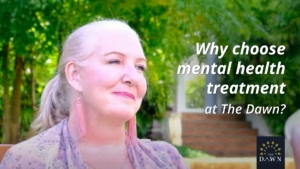
Christine’s testimonial:
Life at the dawn
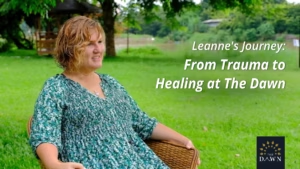
Leanne's Journey: From Trauma to Healing at The Dawn
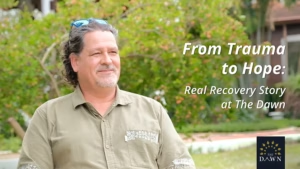
From Trauma to Hope: Real Recovery Story at The Dawn
We accept all major international insurance plans





FIND PEACE OF MIND AT THE DAWN’S RETREAT FOR ANXIETY AND DEPRESSION
Standards You Can Trust
We are proud members of these major international addiction associations, reflecting our commitment to ethical, evidence-based treatment and continuous improvement.

